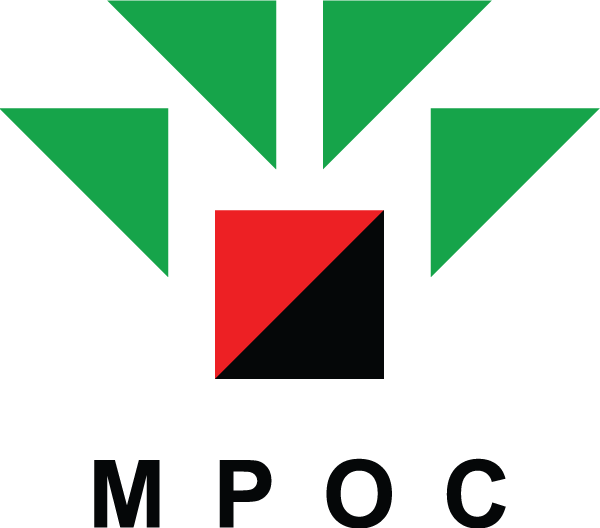


Dr Aleksey Udovenko graduated with honors from Kharkov Polytechnical University, with a Masters degree in food technology with a specialty of fats and fat substitutes technology. He then continued his education at Moscow State University with a second degree in Public Relations. In 2021, he obtained a PhD in food engineering.
Before joining MPOC, Dr Aleksey has 8 years of experience working in the food industry of Ukraine. He started working in 2002 as a project development manager at Ilyichevsk Oils and Fats Industrial Complex (IOFIC), Ukraine. He was then promoted to General Manager of Bulking Operations , Key Technologist and Head of Quality Control department of Ilyichevsk Oils and Fats Industrial Complex.
Dr Aleksey’s last position in IOFIC was as the General Production Manager (Chief Production Dispatcher) before joining MPOC in 2012 as the head of Moscow Office.
In the transport sector, biodiesel is effectively used both when mixed with diesel fuel and in its pure form. However, when using pure biodiesel (100 %), automakers need to make minor modifications to their engines. Besides, biodiesel can be used to generate heat (in heating systems).
Biodiesel Production Technology
Biodiesel is produced by a chemical reaction between vegetable oil (rapeseed, soybean, and sunflower) or used frying oil/animal fat and alcohol, such as methanol or ethanol.
World Biodiesel Production
According to Oil World ISTA Mielke GmbH, out of 225 million tons of oils and fats produced in 2017/2018, about 15 % has been used in the energy sector. Over the past 11 years, biodiesel production has tripled. Palm oil is one of the main raw materials for biodiesel production. For this purpose, 12 million tons or 18 % of palm oil total consumption was used in 2017.
Rapeseed and palm oils are the main raw material for biodiesel production in the EU.
Prospects of Ukraine
Ukraine intends to legislatively introduce the addition of biodiesel shortly.
On November 29, 2017, the Verkhovna Rada registered draft law No. 7348 developed following Directive 2009/28/EC together with the State Agency for Energy Efficiency and Energy Saving. The initiators of the draft law were 35 deputies of various factions. The main provisions of draft law No. 7348 are the establishment of mandatory quotas for manufacturers and importers of motor fuels, regulating the number of bio components in total sales in Ukraine, as well as fines for non-compliance with these requirements. The draft law was unanimously supported by the Verkhovna Rada Board of Transport. The Board recommended that the Parliament adopt the law in the first reading. This initiative of the Verkhovna Rada of Ukraine can give impetus to the development of the country’s biodiesel industry while reducing its dependence on imported fossil fuels, which account for 95 % of fuel consumption.
Ukrainian Biodiesel Export Potential
Ukraine is the world’s largest exporter of sunflower oil. It also exports soybean and rapeseed oil. Ukraine has the potential of becoming a major biodiesel producer of for all three kinds of oil.
Moreover, when producing refined sunflower oil (Ukraine produces it in large volumes), about 10,000 tons of deodorization cuts (free fatty acids) are generated. These “waste” can be used as a raw material in biodiesel production.
Methyl Alcohol
Another important component for biodiesel production is low chain alcohols. In industry, triglycerides are reacted with an alcohol, such as methanol, to generate fatty acid esters and glycerol. Alcohol reacts with fatty acids to form monoalkyl ester (biodiesel) and raw glycerol. Over the past five years, methanol import to Ukraine averaged 33 thousand tons. With 88 % of the market, Russia is the leading supplier.
Fatty Acids Export from Ukraine
Another component of biodiesel production is a fatty acid. Ukraine’s average export of industrial monocarboxylic fatty acids; acidic oils from refining; industrial fatty alcohols as per code HS 3823 amounts to 26 thousand tons per year.
A huge advantage for Ukraine is that the major players in this market are its nearest neighbours: Poland, Slovakia, Hungary, Romania and Bulgaria – with many of which the country has common borders. This gives good prospects for the growth of bilateral trade on this item, biodiesel.
Ukraine is capable of producing fatty acids from any vegetable oil (soybean, rapeseed, sunflower). Also, having its own oil refining plants, Ukraine already produces a large number of fatty acid oils. Low cost and high quality can make deodorization cuts a good raw material for biodiesel production.
Summing up, it is safe to say that Ukraine has good prospects to become a major exporter of biodiesel in Eastern Europe.




